Related Research Articles
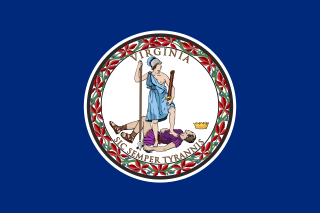
Virginia, officially the Commonwealth of Virginia, is a state in the Southeastern and Mid-Atlantic regions of the United States between the Atlantic Coast and the Appalachian Mountains. The state's capital is Richmond and its most populous city is Virginia Beach, though its most populous subdivision is Fairfax County, part of Northern Virginia, where slightly over a third of Virginia's population of 8.72 million live as of 2023.

The civil rights movement was a social movement and campaign from 1954 to 1968 in the United States to abolish legalized racial segregation, discrimination, and disenfranchisement in the country. The movement had its origins in the Reconstruction era during the late 19th century and had its modern roots in the 1940s, although the movement made its largest legislative gains in the 1960s after years of direct actions and grassroots protests. The social movement's major nonviolent resistance and civil disobedience campaigns eventually secured new protections in federal law for the civil rights of all Americans.
Brown v. Board of Education of Topeka, 347 U.S. 483 (1954), was a landmark decision of the U.S. Supreme Court ruling that U.S. state laws establishing racial segregation in public schools are unconstitutional, even if the segregated schools are otherwise equal in quality. The decision partially overruled the Court's 1896 decision Plessy v. Ferguson, which had held that racial segregation laws did not violate the U.S. Constitution as long as the facilities for each race were equal in quality, a doctrine that had come to be known as "separate but equal". The Court's unanimous decision in Brown, and its related cases, paved the way for integration and was a major victory of the civil rights movement, and a model for many future impact litigation cases.

The Southern United States, sometimes Dixie, also referred to as the Southern States, the American South, the Southland, Dixieland, or simply the South, is a geographic and cultural region of the United States of America. It is between the Atlantic Ocean and the Western United States, with the Midwestern and Northeastern United States to its north and the Gulf of Mexico and Mexico to its south.
Historically black colleges and universities (HBCUs) are institutions of higher education in the United States that were established before the Civil Rights Act of 1964 with the intention of primarily serving African Americans. Most of these institutions were founded during the Reconstruction era after the Civil War and are concentrated in the Southern United States. They were primarily founded by Protestant religious groups, until the Second Morill Act of 1890 required educationally segregated states to provide African American, public higher-education schools in order to receive the Act's benefits.

The Constitution of the Commonwealth of Virginia is the document that defines and limits the powers of the state government and the basic rights of the citizens of the Commonwealth of Virginia. Like all other state constitutions, it is supreme over Virginia's laws and acts of government, though it may be superseded by the United States Constitution and U.S. federal law as per the Supremacy Clause.
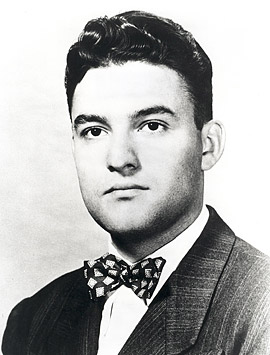
Jack Greenberg was an American attorney and legal scholar. He was the Director-Counsel of the NAACP Legal Defense Fund from 1961 to 1984, succeeding Thurgood Marshall. He was involved in numerous crucial cases, including Brown v. Board of Education, which ended segregation in public schools. In all, he argued 40 civil rights cases before the U.S. Supreme Court, and won almost all of them.

The Virginia Conventions have been the assemblies of delegates elected for the purpose of establishing constitutions of fundamental law for the Commonwealth of Virginia superior to General Assembly legislation. Their constitutions and subsequent amendments span four centuries across the territory of modern-day Virginia, West Virginia and Kentucky.
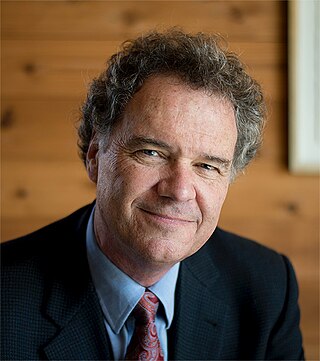
Edward Lynn "Ed" Ayers is an American historian, professor, administrator, and university president. In July 2013, he was awarded the National Humanities Medal by President Barack Obama at a White House ceremony for Ayers's commitment "to making our history as widely available and accessible as possible." He served as the president of the Organization of American Historians in 2017–18.
The Jim Crow laws were state and local laws introduced in the Southern United States in the late 19th and early 20th centuries that enforced racial segregation, "Jim Crow" being a pejorative term for an African American. Such laws remained in force until 1965. Formal and informal segregation policies were present in other areas of the United States as well, even as several states outside the South had banned discrimination in public accommodations and voting. Southern laws were enacted by white-dominated state legislatures to disenfranchise and remove political and economic gains made by African Americans during the Reconstruction era. Such continuing racial segregation was also supported by the successful Lily-white movement.
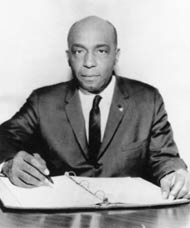
Samuel Wilbert Tucker was an American lawyer and a cooperating attorney with the National Association for the Advancement of Colored People (NAACP). His civil rights career began as he organized a 1939 sit-in at the then-segregated Alexandria, Virginia public library. A partner in the Richmond, Virginia, firm of Hill, Tucker and Marsh, Tucker argued and won several civil rights cases before the Supreme Court of the United States, including Green v. County School Board of New Kent County which, according to The Encyclopedia of Civil Rights In America, "did more to advance school integration than any other Supreme Court decision since Brown."
The civil rights movement (1865–1896) aimed to eliminate racial discrimination against African Americans, improve their educational and employment opportunities, and establish their electoral power, just after the abolition of slavery in the United States. The period from 1865 to 1895 saw a tremendous change in the fortunes of the Black community following the elimination of slavery in the South.

A poll tax is a tax of a fixed sum on every liable individual, without reference to income or resources. Although often associated with states of the former Confederate States of America, poll taxes were also in place in some northern and western states, including California, Connecticut, Maine, Massachusetts, Minnesota, New Hampshire, Ohio, Pennsylvania, Vermont, Rhode Island, and Wisconsin. Poll taxes had been a major source of government funding among the colonies which formed the United States. Poll taxes made up from one-third to one-half of the tax revenue of colonial Massachusetts. Various privileges of citizenship, including voter registration or issuance of driving licenses and resident hunting and fishing licenses, were conditioned on payment of poll taxes to encourage the collection of this tax revenue. Property taxes assumed a larger share of tax revenues as land values rose when population increases encouraged settlement of the American West. Some western states found no need for poll tax requirements; but poll taxes and payment incentives remained in eastern states. Poll taxes became a tool of disenfranchisement in the South during Jim Crow, following the end of Reconstruction. This persisted until court action, following the ratification of the 24th Amendment in 1964, ended the practice.
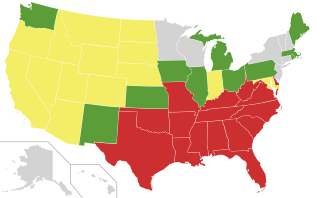
In the United States, many U.S. states historically had anti-miscegenation laws which prohibited interracial marriage and, in some states, interracial sexual relations. Some of these laws predated the establishment of the United States, and some dated to the later 17th or early 18th century, a century or more after the complete racialization of slavery. Nine states never enacted anti-miscegenation laws, and 25 states had repealed their laws by 1967. In that year, the U.S. Supreme Court ruled in Loving v. Virginia that such laws are unconstitutional under the Fourteenth Amendment to the U.S. Constitution.
The Richmond 34 refers to a group of Virginia Union University students who participated in a nonviolent sit-in at the lunch counter of Thalhimers department store in downtown Richmond, Virginia. The event was one of many sit-ins to occur throughout the civil rights movement in the 1960s and was essential to helping desegregate the city of Richmond.
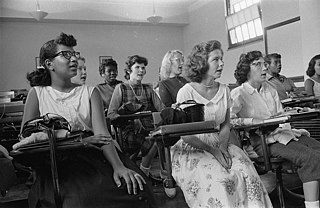
In the United States, school integration is the process of ending race-based segregation within American public and private schools. Racial segregation in schools existed throughout most of American history and remains an issue in contemporary education. During the Civil Rights Movement school integration became a priority, but since then de facto segregation has again become prevalent.
This is a timeline of the civil rights movement in the United States, a nonviolent mid-20th century freedom movement to gain legal equality and the enforcement of constitutional rights for people of color. The goals of the movement included securing equal protection under the law, ending legally institutionalized racial discrimination, and gaining equal access to public facilities, education reform, fair housing, and the ability to vote.

The Virginia Constitutional Convention of 1868, was an assembly of delegates elected by the voters to establish the fundamental law of Virginia following the American Civil War and the Fourteenth Amendment to the US Constitution. The Convention, which met from December 3, 1867 until April 17, 1868, set the stage for enfranchising freedmen, Virginia's readmission to Congress and an end to Congressional Reconstruction.

The sit-in movement, sit-in campaign or student sit-in movement, were a wave of sit-ins that followed the Greensboro sit-ins on February 1, 1960 in North Carolina. The sit-in movement employed the tactic of nonviolent direct action and was a pivotal event during the Civil Rights Movement.
Bertha Louise Douglass was an American civil rights activist and lawyer who was the second African American woman admitted to the Virginia State Bar.
References
- ↑ Jaschik, Scott (January 2, 2008). "'Higher Education and the Civil Rights Movement'". Inside Higher Education. Retrieved June 13, 2014.